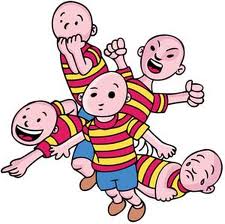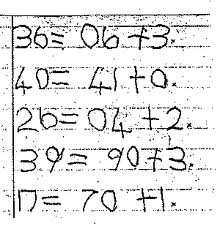Types of Learning Disabilities
Attention-Deficit/Hyperactivity Disorder
It is a condition that can make it hard for a person to sit still, control behavior, and pay attention. These difficulties usually begin before the person is 7 years old.
Symptoms:
There are three main symptoms, of AD/HD:
Problems with paying attention,
Being very active (called hyperactivity)
Acting before thinking (called impulsivity).
This disorder can be sub divided into 3 kinds:
Inattentive type:
Children with the inattentive type of AD/HD often:
do not pay close attention to details;
can’t stay focused on play or school work;
don’t follow through on instructions or finish school work or chores;
can’t seem to organize tasks and activities;
get distracted easily; and
lose things such as toys, school work, and books
Hyperactive-impulsive type: Children with the hyperactive-impulsive type of AD/HD often may:
fidget and squirm;
get out of their chairs when they’re not supposed to;
run around or climb constantly;
have trouble playing quietly;
talk too much;
blurt out answers before questions have been completed;
have trouble waiting their turn;
interrupt others when they’re talking; and
butt in on the games others are playing.
Combined type: Children with the combined type of AD/HD have symptoms of both of the types described above. They have problems with paying attention, with hyperactivity, and with controlling their impulses.
Dyscalculia
Dyscalculia is a term referring to a wide range of life-long learning disabilities involving maths. These difficulties vary from person to person and affect people differently in school and throughout life. Learning to count, recognizing numbers and matching numbers with amounts can also be difficult for these children.Difficulties may also arise because of weakness in visual-spatial skills, where a person may understand the needed math facts, but have difficulty putting them down on paper in an organized way. Visual-spatial difficulties can also make understanding what is written on a board or in a textbook challenging.Language processing disabilities can make it hard for a person to get a grasp of the vocabulary of math.
Symptoms:
Spatial problems and difficulty aligning numbers into proper columns.
Number sequencing, including left/right orientation. They may read numbers out of sequence and sometimes do operations backwards.
Find mathematics concepts in word problems difficult to understand, confusing similar numbers (e.g., 7 and 9; 3 and 8), and have difficulty using a calculator.
Difficulty with the abstract concepts of time and direction, the inability to recall schedules, and unable to keep track of time.
Extreme cases may lead to phobias with mathematics and mathematical devices.
Difficulty in keeping scores during games.
Not accounted for by another psychological disorder such as Mental Retardation.
Treatment:
Following identification, parents and teachers should work together to establish strategies that will help the student learn mathematics more effectively. Repeated reinforcement and specific practice of straightforward ideas can make understanding easier. Counseling and Psychotherapy of the child may also help.
Dyslexia
Dyslexia is the term used when people have difficulty learning to read. The word dyslexia comes from two Greek words: dys, which means abnormal or impaired, and lexis, which refers to language or words.Dyslexia is not a disease. It's a condition that you are born with, and it often runs in families. The person probably will read slowly and feel that he/she has to work extra-hard when reading. The person might mix up the letters in a word, for example, reading the word "now" as "won" or "left" as "felt." Words may blend together and spaces are lost.Dyslexia means that a person's brain has trouble processing letters and sounds. That makes it tough to break words into separate speech sounds, like b-a-t for bat. When it's hard to do that, it's really hard to connect speech sounds to different letters, like "buh" for b, and blend them into words.
Symptoms:
Poor reading skills, despite having normal intelligence
Poor spelling and writing skills
Difficulty finishing assignments and tests within time limits
Difficulty remembering the right names for things
Difficulty memorizing written lists and phone numbers
Difficulty with directions (telling right from left or up from down) or reading maps
Dyslexia is a neurologically-based, often familial, disorder which interferes with the acquisition and processing of language. Varying in degrees of severity, it is manifested by difficulties in receptive and expressive language, including phonological processing, in reading, writing, spelling, handwriting, and sometimes in arithmetic.
Dyslexia is not the result of lack of motivation, sensory impairment, inadequate instructional or environmental opportunities, or other limiting conditions, but may occur together with these conditions.
Although dyslexia is lifelong, individuals with dyslexia frequently respond successfully to timely and appropriate intervention.





